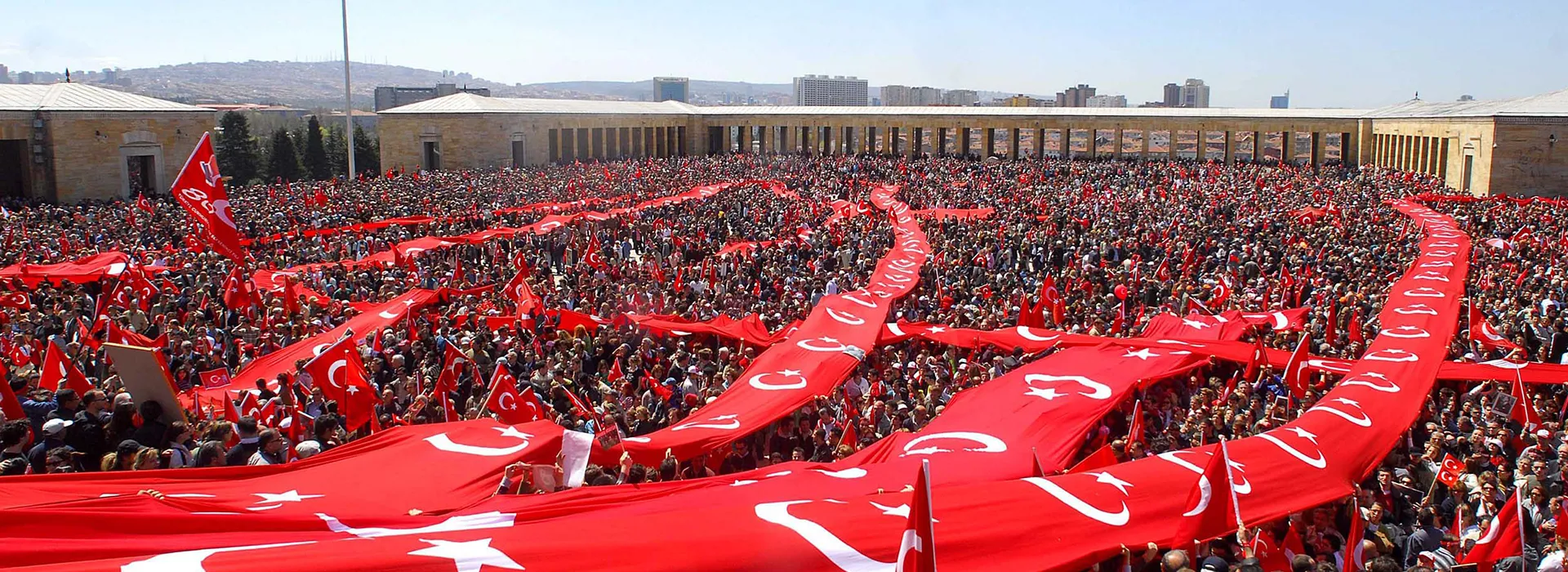Joe Gutierrez Office of Strategic Communication (909) 537-5007 joeg@csusb.edu

The challenges faced by the Kurdish minority and Syrian refugees in the Republic of Turkey will be the focus of a panel discussion at Cal State San Bernardino on Thursday, Nov. 9.
“New Turkey from the Perspective of Its Minorities” is scheduled to take place beginning at 6 p.m. at the university’s College of Education building, room CE-105. The program is a presentation of CSUSB’s Center for Islamic and Middle Eastern Studies, and is free and open to the public. Parking at CSUSB is $6.
“This panel looks at contemporary Turkey through the eyes and experiences of the Kurdish minorities and Syrian refugees, especially on Turkey’s southeast border,” said Ece Algan, director of CIMES and professor of communication studies. “Because not only their lives have been directly impacted by the changes happening in Turkey and the larger Middle East, but at the same time, much of the recent political turmoil has happened because of actions and policies by Turkey — as well as those by the United States, Iraq and Iran — regarding Kurds in the region, which range from arming them so they fight against ISIS to waging a fight against them to protect the integrity of their own national borders.
“While Kurds in the region often feel used and betrayed by the regional powers and the U.S., Syrian refugees in the region are treated as the unwanted burden and face incredible challenges in their efforts to integrate into their new lives,” Algan said. “The panel will discuss Turkey’s role and response to all this. So, it will be quite informative for anyone who wants to understand the complex regional ethnic politics and the impact of U.S. policies in the region on these vulnerable populations.”
Turkey has had a number of challenges within the past few years. Its five-decade long armed conflict with the outlawed Kurdish Workers’ Party was reignited in 2015 causing unrest, turmoil and the massive destruction in Kurdish provinces in Southeast Turkey. The war in Syria caused 4 million Syrian refugees residing in Turkey while Kurdish peshmerga fighters in Syria and Iraq have been fighting against ISIS.
In July of 2016, Turkey also experienced a failed coup attempt, which brought some changes in its political arena and governance with consequences on its border relations.
The panel will review recent changes in Turkey’s politics, constitution, governance, refugee policies, and its relations with its neighbors with a specific focus on its Kurdish minority and Syrian refugees.
The panel will also focus on how Syrian refugees are coping in Turkey, the rise in Kurdish nationalism in the region, Kurdish women’s movement and their role in curbing ISIS violence, non-government and human rights organizations’ work with the Kurdish minority and Syrian refugees in Southeast Turkey, and the increasing authoritarianism in Turkey.
The panelists are:
Latif Tas, who is a Marie Sklodowska-Curie Global Fellow at the Centre for Gender Studies at SOAS, University of London. Beginning this year through 2019, he is serving as an assistant professor at the Maxwell School of Citizenship and Public Affairs, Syracuse University in New York.
His work is interdisciplinary and focuses on the politics of justice, legal and political anthropology, diaspora mobilization, transnationalism, gender, citizenship, social movements, conflict and peace in Europe and Middle East, especially with reference to Turkey, Kurds, the Ottoman Empire, the UK and Germany.
His most recent research project on the politics of justice, gender and transnationalism has received funding from the European Union's Horizon 2020 research and innovation program under a Marie Sklodowska-Curie grant. SOAS, University of London; Maxwell School of Citizenship and Public Affairs, Syracuse University; and Max Planck Institute for Social Anthropology (Halle, Germany) are hosts of this ongoing project.
Esin Duzel, who has a Ph.D. in anthropology from UC San Diego. Her work examines transnational Kurdish movement's “utopian morality,” looking at how Kurdish politics imagine new moralities, subjectivities and gender relationships. She is currently a lecturer in the departments of anthropology and critical gender studies at UCSD, teaching on transnational feminism, labor, power and multiculturalism.
Selin Yildiz Nielsen, who is co-founder and president of Glocally Connected. She has worked in international education for the last 25 years as a director, professor, coordinator, manager, teacher and consultant. She is a graduate of UC Berkeley, CSUSB and UC Riverside, holding a Ph.D. in institutional leadership and policy studies.
Her work with refugees started in the Iowa International Center, a nonprofit organization dedicated into making the immigrant and refugees’ lives easier. Nielsen later on has led projects providing educational assistance to teachers in Syrian refugee camps in Southeast Turkey during her time as a visiting professor there. She has presented in numerous conferences and academic talks about social, cultural, economical and political aspects of refugee crises in the world.
“New Turkey from the Perspective of Its Minorities” is co-sponsored by the CSUSB Department of World Languages and Literatures and the Mediterranean Studies Academy.
For more information and accommodations, please contact Ece Algan, director of CIMES at (909) 537-7469 or ealgan@csusb.edu.
Visit the CSUSB Center for Islamic and Middle Eastern Studies website at http://cimes.csusb.edu for more information on its programs.
For more information on Cal State San Bernardino, contact the university’s Office of Strategic Communication at (909) 537-5007 and visit news.csusb.edu.